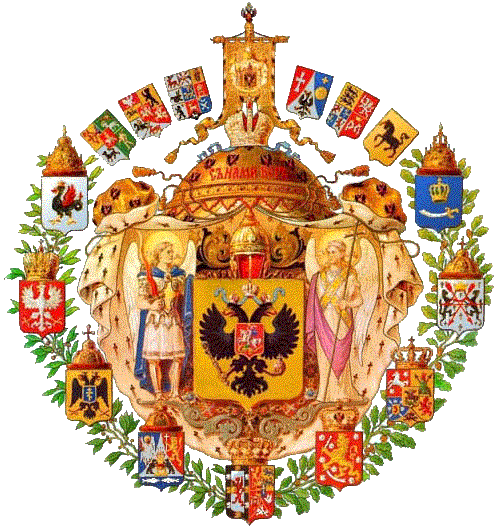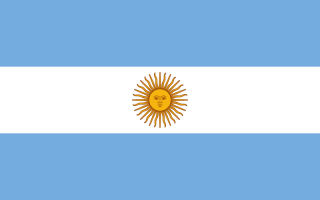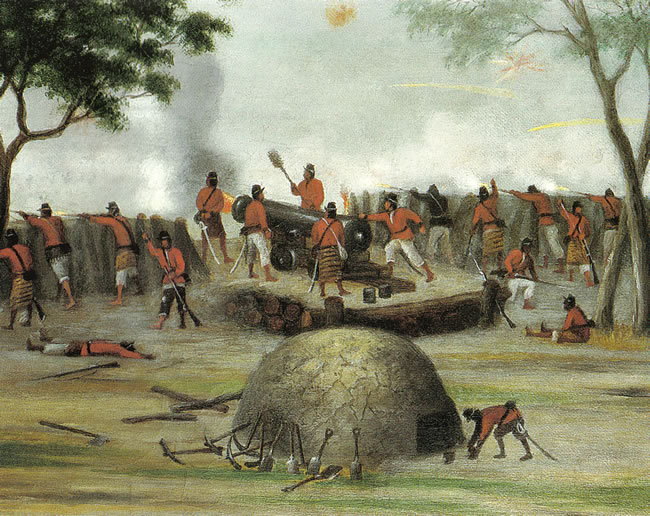Events of the World: 1867EuropeFollowing the example of many other nations, the United Republic embarked on a plan to transition it's navy into a fully metal fleet.
(-£10,000, -30 ships-of-the-line, +5 ironclads, +5 ironclads in 1 turn, +5 ironclads in 2 turns, +5 ships-of-the-line to Argentina, +10 ships-of-the-line to Prussia)
Under Gladstone administration, the government was streamlined and unnecessary costs were cut down.
(-£130, increased income)
The University of Eve was founded, intended to be a sister school to Le Grand Université d'Adam in France. Costs were higher than expected.
(-£400, +5% education rate)
The French government formed the Canadian Confederation, making Canada a dominion of France. The land in the north-west was claimed by the government as a result of this, with the natives having little say in the matter.
(-£100, +4% public support, increased land)
Attempts were made to increase the industrial output of Canada. Factories were built over rich sources of coal, with emphasis placed in the west.
(-£540, +1 industry sublevel)
Treaties with Argentine, Scandinavia, Greece, Portugal, and Prussia were ratified by the French government. Particular focus was on a joint Franco-Prussian project to produce a new rifle.
(-£2,330, +4% education rate, -£300 to Prussia, +4% equipment to France, +4% equipment to Prussia, +£1,000 to Portugal, increased income to Greece, +4% equipment to Argentina)

French soldier with a Chassepot rifleShipyards began producing new vessels. However, progress was not as quick as was hoped.
(-£9,000, +5 ships-of-the-line, +8 screw frigates)
The Prussian government received the ships from Britain with gratitude - and then proceeded to strip them down and rebuild them as ironclads. More ships were built alongside, as Prussia strove to be the dominant naval force in the world.
(-£23,000, -10 ships-of-the-line, +5 ironclads, +5 ironclads in 1 turn, +10 screw frigates, +10 screw frigates in 1 turn, +10 transport ships)
Subsidies were given to families with more than four children, in order to encourage higher birth rates.
(-£210, +0.17% population growth)
In Austria, a compromise was made with Hungary, which reorganised the lands of the House of Hapsburg into a proper union between the Austrian Empire and the Kingdom of Hungary. The newly renamed Dual Monarchy of Austria-Hungary, or Austria-Hungarian Empire, gave greater independence to minority groups under the Hapsburg crown.
(+5% public support)
Roads and railways connecting industrial areas were improved and expanded, to help facilitate the movement of goods.
(-£490, +1 infrastructure sublevel)
Further attempts to reform education in Austria-Hungary were launched, in order to improve its low literacy and education rate.
(-£200, +6% education rate)
Sweden undertook a plan to modernise its navy, dividing the order up over a number of years in order to prevent Swedish shipyards from being overwhelmed.
(-£18,400, -4 ships-of-the-line, -4 sail frigates, +4 ironclads, +4 screw frigates, +3 transport ships, -3 ships-of-the-line in 1 turn, -4 sail frigates in 1 turn, +3 ironclads in 1 turn, +4 screw frigates in 1 turn, +3 transport ships in 1 turn, -4 sail frigates in 2 turns, +3 ironclads in 2 turns, +4 screw frigates in 2 turns, +3 transport ships in 2 turns, -4 sail frigates in 3 turns, +4 screw frigates in 3 turns)
Factories in Sweden were upgraded and improved, in order to increase industrial output.
(-£520, +1 industry sublevel)
Scandinavian influence over Greenland was expanded, with explorers moving north, and the Swedish government claiming dominion over all of Greenland up to the Arctic circle.
(-£100, increased land)
With assistance from France, the Swedish army received training from French officers, and blueprints for French weapons, which were quickly put to use.
(-£720, +1 army sublevel, +4% equipment)
The government of the Netherlands sponsored the construction of steel factories throughout the kingdom.
(-£530, +1 industry sublevel)
Railways were built to incorporate the Flanders region and connect major Flemish cities with the north.
(-£510, +1 infrastructure sublevel)
Now with a foothold in New Guinea, the Netherlands expanded its influence further east deeper into the foreboding island.
The Russian government launched a nationwide propaganda campaign to encourage nationalism and support for the war.
(-£150, +4% public support)
With a huge number of men serving in the army, the government was forced to offer tax incentives to those willing to work on farms and fields, in order to increase agricultural output.
(-£400, +1 resource sublevel)
The Russian navy began converting sail-powered ships into steam-driven versions.
(-£2,500, -5 sail frigates, +5 screw frigates)
The Romanian Academy, a cultural school, was founded in Bucharest.
(-£290, +4% education rate)
With their part in the war over, Romanian conscripts were disbanded and returned to their everyday lives. As they returned to their farms, an increase in agricultural output resulted.
(Romanian army disbanded, +1 resource sublevel)
Funding was directed into advancing the quality of hospitals and healthcare in Romania.
(-£220, +0.1 population growth)
Greek shipyards began construction on new steam-driven vessels.
(-£1,300, +2 screw frigates)

Greek shipyard at workProspecting teams searching for deposits of minerals found a useful vein of iron.
(-£250, +1 resource sublevel)
New factories were built and existing ones expanded in Greece.
(-£550, +1 industry sublevel)
Portugal launched a campaign to root out corruption in the government. Corrupt officials were caught and punished.
(-£200, +3% public support, increased income)
Schools and universities were built throughout Portugal to try and raise the national literacy rate and encourage further education.
(-£210, +5% education rate)
Attempts were made to improve the ties between the Kingdom of Kongo and Portugal. It was mostly successful, with the kingdom supporting Portugal warmly.
The AmericasThe Fourteenth and Fifteenth Amendments to the US Constitution were adopted, giving former slaves US citizenship and the right to vote.
(-£110, +4% public support)

The former Confederate states were gradually remitted back into the Union, after 10% of the voting population had taken an oath of allegiance to the United States.
(-£90, +5% public support)
The Negro Homestead Act was passed; allowing all US blacks to purchase grants of land in Colorado, New Mexico, Washington, Columbia, and Nebraska territories cheaply.
(-£300, +1 resource sublevel)
New ships were ordered by the Colombian government.
(-£1,800, +3 sail frigates)
Industrial output was increased by offering subsidies to investors.
(-£510, +1 industry sublevel)
A university was built in Panama City, hoping to capitalise on the amount of trade and knowledge that goes through the Isthmus.
(-£200, +4% education rate)
The Brazilian army conducted a number of training exercises and drills to improve their efficiency and quality.
(-£500, +1 army sublevel)
Schools were built in cities around Brazil.
(-£180, +4% education rate)
Factories were built in Brazil, with focus in the city of Rio.
(-£500, +1 industry sublevel)
Railways and roads were built linking southern Brazil with the less developed northern part of the country.
(-£510, +1 infrastructure sublevel)
Argentinean army generals began meeting regularly to discuss the state of the military. One of their focusses was improving mobilisation and logistics.
(-£520, +1 army sublevel)
The Argentine government received the ships from Britain and the rifles from France with gratitude, and immediately went to work drilling their troops with the new weapons.
AsiaThe Qing army continued to drill to the best of their abilities, preparing for the coming battles.
(-£510, +1 army sublevel in 1 turn)
Factories were erected throughout the country, to try and increase industrial output.
(-£500, +1 industry sublevel)
Coastal cities began to be fortified, with heavy defenses and positions being constructed.
(-£740, coastal defences improved)
With the resignation of the 15th Tokugawa Shogun, Tokugawa Yoshinobu, the Shogunate came to an official end and imperial rule was formally restored.
(-£80, +4% public support)

Tokugawa Yoshinobu, the last Shogun of JapanThe Emperor travelled throughout Japan to encourage national unity amongst his people.
(-£120, +4% public support)
Former shoguns and samurai were offered better positions in the military, putting their martial upbringing to good use.
(-£490, +1 army sublevel)













